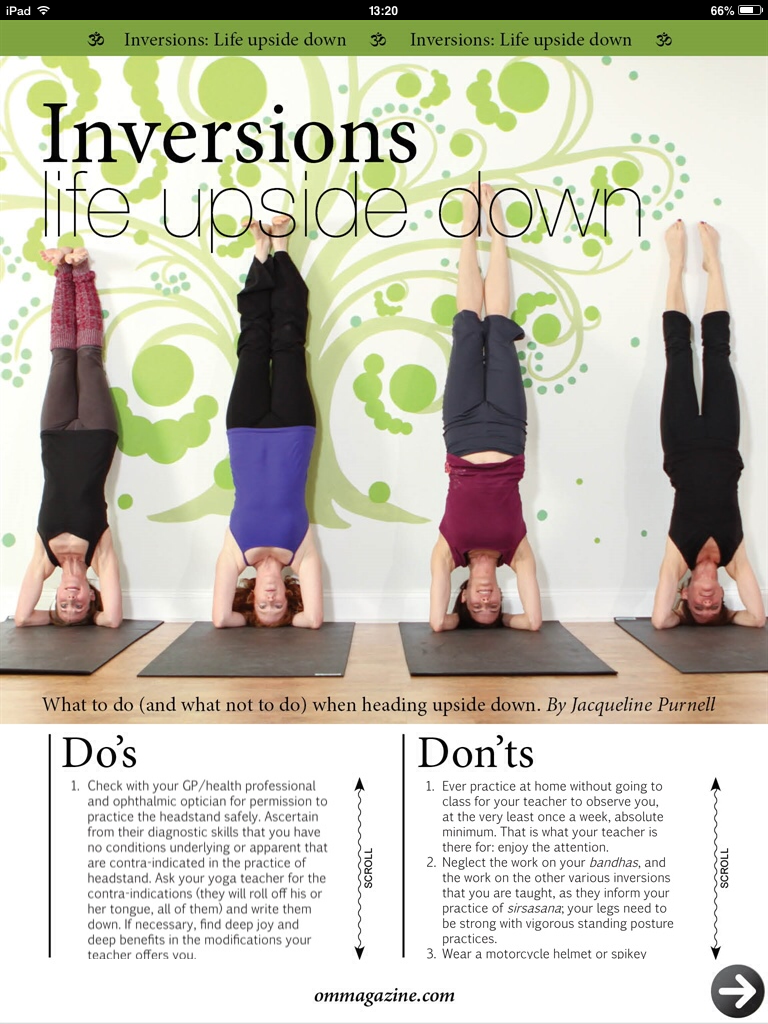
Yoga can help increase bone density in many ways. Yoga can stimulate deep change in the body, and it can also be used as an exercise program. Asanas in Yoga can increase bone density, as well as strengthen muscle and bone. These exercises are particularly helpful for those with low bones. Yoga to increase bone density is not right for everyone. There are many risks associated with yoga for bone density. It is important that you learn the best method for you.
Yoga for bone health may not suit everyone. Many of the study subjects were elderly and had weak bones. While the results are impressive, it is possible that the effects would have been greater in younger people. The practice may have been better suited for people with healthy bones. It may also be more effective if you have weak bones. These people are at greater risk for injury, such as fractures. An older person may not find yoga suitable.

Although the results weren't statistically significant, the researchers discovered that yoga can increase bone density in the spine and hips. The study found that 109 osteoporosis patients and osteopenia participants practiced yoga regularly for more than 90,000 hours, without sustaining any injuries. These results suggest that yoga can be beneficial for people with significant bone loss. Therefore, many practitioners of yoga for bones can reap the benefits of the practice. Yoga practitioners should not worry too much about the effects of yoga for bones, but should be mindful not to go overboard.
Some yoga poses for bone density can be too strenuous. For instance, a standing forward folding pose may be too strenuous especially for the weaker. A half-standing forward fold, called ardha uttanasana, is better for those who are weaker or have osteoporosis. While performing these exercises, you should be careful to not overexert your body.
Yoga for bone density has many benefits. In a 30-minute class, you should practice at least five postures per day. Yoga helps improve balance and bone density. It can improve posture and balance. It can also help reduce stress and pain. It is a good idea to do this exercise if you are experiencing osteoporosis. An instructor can provide the right guidance and keep you safe.

Many people with osteoporosis have a weaker bone. In addition, osteoporosis can affect women in any age, and the most common form is osteoporosis. This is due to a shortage of estrogen which is responsible for building bones. When you begin yoga, you will feel more awake and alert. The body releases cortisol stress hormone, which is a major cause of osteoporosis.
FAQ
What foods should I avoid when trying lose weight?
Avoid trans fats. Trans fats can increase LDL (the negative) cholesterol levels and decrease HDL (the positive) cholesterol.
Trans fats can be found in fast food, deep-fried foods, packaged baked goods, snack cake, and other processed foods.
These unhealthy fats are also known to cause inflammation and lead to heart disease as well as diabetes.
Avoid eating foods that contain artificial sweeteners. Artificial sweeteners may increase your chance of getting cancer.
These chemicals can be found in soft drinks, chewing gum, and candy bars. They can also be found in other foods like meat, poultry, and eggs.
Artificial sweeteners include saccharin, cyclamate, sorbitol, aspartame, acesulfame-K, and sucralose.
The American Heart Association advises against using these chemicals, as they could damage DNA.
How fast can I transform myself?
Your mindset must be changed. You have to be willing to change.
Once you have decided you want to make changes, you will need to commit to your fitness goals at least for 3 months.
Then, find a program to fit your life.
Also, you need to set realistic goals. If you're not willing to invest the time and effort required to achieve your goal, then don't buy a gym subscription.
Instead, make use of your time outdoors.
Spend an hour walking around the block every day and you will burn enough calories to lose 1 lb each week.
Now that you know what you're going to do start planning how you will organize your life to fit this new plan.
It is important to set aside time every day for exercise before going to work. You can also take breaks throughout each day to get up and move.
Finally, you should reward yourself when you reach milestones. You can buy accessories and clothes that reflect your success.
Which is the best order to exercise?
It all depends what you want. If you want to build muscle mass, then do heavy weights first. Then you can move to cardio. For those who want to lose weight or exercise, you can switch from cardio to strength-training.
If you just want to burn fat, start by doing cardio. After that, you can add strength training.
You should do cardio last if your goal is to increase muscle mass. This stimulates growthhormones, which helps build muscle mass.
Eat before you go to the gym. This will fuel you muscles better, which will make it work harder. Plus, it makes you feel better during your workout.
How To Get Rid Of Belly Fat Fast?
There are many methods that can help you reduce your belly fat quickly. You can reduce your intake of food and drink more water.
You can also increase your metabolism through activities like running or swimming.
To quickly reduce belly fat, avoid sitting too much. Stand up often throughout the day. This will help reduce calories.
If you've tried all the methods and are still struggling with belly fat, there's another option.
You will need a belt to do this. The belt fits around your waist and is tightened when you sit down.
It will cause you to feel uneasy and make it difficult for you to move. This forces you to burn more calories and reduces your belly fat.
Do I have the obligation to exercise every day or just on occasion?
No! No! This means that you should be able to walk fast enough to feel slightly out of breath, or bike hard enough to sweat.
Is it true that kidney stones can be caused by overeating protein?
Protein helps maintain healthy bones and tissue. Too much protein can cause calcium to be excreted through the urine. This can cause kidney stones.
It is important to remember that not all people get kidney stones from eating more than 2g protein per kilogram (2.2lbs) of body weight. People can eat large amounts of protein and not get kidney stones.
Your sodium intake can prevent kidney stone formation. Sodium regulates the body's water balance. Too much sodium can cause kidney stones.
If you have kidney stone, you might also consider reducing your protein intake. About half of adults' daily caloric intake is made up of protein. It is possible to lose weight by cutting down on your intake of proteins.
If you do decide to eat more protein, don't go overboard. You should aim to consume less than 20% of your total calories from protein.
Statistics
- Candidates and applicants must pass all four tests at 70% (minimum level) to graduate from Basic Deputy U.S. Marshal (BDUSM) Training. (usmarshals.gov)
- By John Thompson Take a whopping 38% off a set of PowerBlock Pros. (menshealth.com)
- The PRS enabled risk stratification for overall prostate cancer and lethal disease with a four-fold difference between men in the highest and lowest quartiles (HR, 4.32; 95% confidence interval [CI], 3.16-5.89). (pubmed.ncbi.nlm.nih.gov)
- An estimated calorie range for moderately active adult males falls between 2,200 to 2,800 calories per day, depending on age. (eatright.org)
- According to the American Academy of Dermatology (AAD), men over 50 are at a heightened risk of developing it. (healthline.com)
External Links
How To
What nutrients does a person need every day?
For healthy growth and development, men need to eat a balanced diet. Vitamins, minerals, vitamins, nutrients, carbohydrates, fats and fiber are all essential for the body.
Males also require specific nutrients at certain times of the day. For example, when you sleep, your body uses energy from food to make hormones, antibodies, and enzymes. You use protein to build muscles and repair damaged tissue when you wake up.
Your body burns fat at night and stores it as energy as glycogen. During this time, your body needs fewer calories but still needs sufficient nutrients. You might have an occasional snack during the night if your stomach is feeling hungry.
When you work out, you need adequate levels of carbs and protein to fuel your muscles. After a hard workout, muscle soreness may occur.
To prevent this from happening, you need to consume carbs or protein within two hours. To provide energy, your body will begin to break down stored glycogen.
After your workouts, you should eat protein immediately. This prevents muscle tissue from being broken down while you are sleeping.
Your body makes lactic acid when you are doing intense physical activities. Your body can build up lactic acid in the bloodstream which causes fatigue. Eat foods high in carbohydrate, such as fruits, vegetables, to avoid this.
Carbohydrates can give your body the energy it requires to recover from intense exercise.
Additionally, lean meats, fish and eggs, dairy products, yogurt, cream, cheese, yogurt and beans can be added to your diet.
All these foods are high-quality sources of protein. Protein helps to repair and grow muscles. Protein is also necessary for the production of sex hormones such as testosterone.
To maintain healthy skin, hair, and joints, you also need sufficient dietary fats. Healthy men should consume between 20% to 35% of their daily caloric intake from fat.
Fat helps protect your heart health and prevents cancer. It keeps your brain healthy and functioning well.
You can get most of the fat you need from vegetable oils like olive oil, sunflower oil, corn oil, soybean oil, peanut oil, and safflower oil.
These oils are high in monounsaturated fatty acids (MUFAs). MUFAs can lower cholesterol levels and reduce inflammation. They also protect your cells from damage caused by free radicals.
Saturated Fats (SFAs), which are mostly found in animal products like meat, butter, and dairy products, include LDL ("bad") cholesterol. SFAs increase LDL ("bad") cholesterol, and increase triglycerides. They promote weight gain as well as belly fat.
Polyunsaturated oils (PUFAs), are found in plant-based foods like nuts, seeds and vegetable oils. PUFAs improve cardiovascular function and decrease inflammation. They also help control blood sugar and cholesterol.
Low HDL ("good") cholesterol can lead to erectile problems in men. Consuming high amounts of saturated fats can increase bad cholesterol and lower good cholesterol.
Men who eat lots of red meat or pork can develop prostate problems. This is because these foods contain high amounts of nitrates. Nitrites convert to nitrosamines when cooked at high temperatures. These compounds can cause cancer.
Most processed meats have nitrites and harmful chemicals. Avoid them.
The American Heart Association recommends that you limit your intake of red meat to 2 per week. Instead, choose poultry, fish, legumes, tofu, whole grain bread, and cereals.